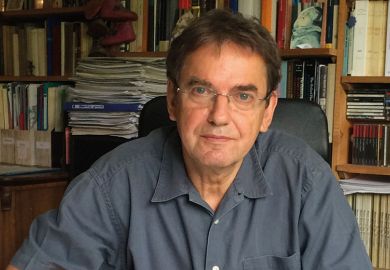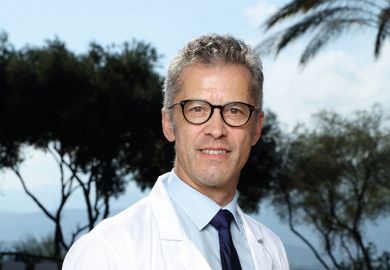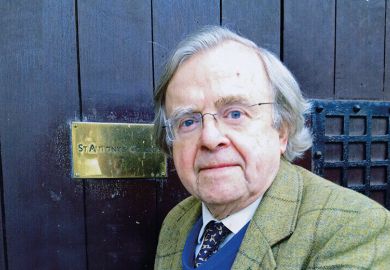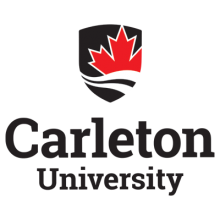Brian Klaas is a fellow in global politics at the London School of Economics. He is an expert on democracy, authoritarianism and US politics, and a Washington Post columnist. His most recent book How to Rig an Election, co-authored with Nic Cheeseman, was published in May.
Where and when were you born?
Minneapolis, Minnesota in 1986.
How has this shaped who you are?
Minnesota is a place where government fundamentally works. It has great schools, vibrant communities and usually is ranked as one of the best US states in terms of quality of life. It also often leads the US in voter turnout. Growing up there gave me a sense that, done right, the government can be a tremendous force for improving the lives of others. It also made me more curious about the places where government was failing or was actively destroying lives – and that led to my scholarly interest in authoritarianism and broken democracies.
What kind of undergraduate were you?
I was a work-hard, play-hard Carleton College student. I took my studies seriously but spent a lot of time doing extracurricular activities and hanging out with friends too. Carleton [a Minnesota liberal arts college] was an amazing place for me, full of passionate, intelligent people who would happily stay up late into the night discussing intellectual puzzles. And I loved that professors were so accessible; my classes had dinner or drinks with our professors many, many times.
What advice would you give to your younger self?
Focus on love, family, friends, adventure, making the world better than you inherited it, and then money – in that order.
What keeps you awake at night?
The pub next door to my flat.
If you weren’t an academic, what do you think you’d be doing?
One of the best things about being an academic is that you don’t have to choose: I’m also a columnist for the Washington Post; I do policy advising and consulting for international NGOs and governments and I talk about politics on TV.
You have more than 150,000 Twitter followers and regularly receive thousands of retweets for your critiques of Trump politics. But does this type of commentary ever change anything?
If citizens receive a constant stream of misinformation and lies, unchecked, they will make bad decisions based on objectively false beliefs. Social media is, therefore, a new and crucial realm for strengthening democracy against the rising tide of illiberalism and authoritarianism. I was one of the first people to relentlessly ring the alarm bells about Trump’s authoritarian streak – which has now become a widely accepted critique of Trump two to three years later. My tweets have also directly influenced questions asked in White House [media] briefings or generated headlines that the White House would wish people didn’t know about because I’ve helped elevate an issue that was flying below the media’s radar.
Do you worry that Twitter consumes too much of your time?
Yes. But I think that this historical moment is precisely why I developed my academic expertise; what’s the use in being an expert on authoritarianism and democratic breakdown if you’re not going to use that expertise when authoritarianism is growing and democracies are breaking down? I have managed – I think – not to let it damage my productivity too much. Since late 2016 – during the period that I’ve been most active on Twitter – I’ve authored two books and co-authored a third.
How will Donald Trump be remembered in 20 years’ time?
Presidential legacies can change dramatically because it’s unclear exactly how their policies will play out. But Trump has already stained his legacy in ways that will be remembered in history. Any history of Trump will have to grapple with his blatant racism and his cynical political strategy of tapping into ethnic tensions and xenophobia to garner support. He is a bigot, and I don’t believe it’ll be controversial to say that in 20 years’ time.
You have also interviewed political dissidents across the world. What have these encounters taught you about the nature of democracy?
I’ve learned that democracy, once lost, is very hard to rebuild and that authoritarianism, once entrenched, is very hard to dislodge. I’ve also learned how incredibly lucky I am to have been born into a democracy. I’ve become used to a familiar pause in conversation, as a torture victim’s voice breaks as he tries to recount his suffering; I’ve heard horrifying stories of dissidents and candidates who told me about being beaten, their bones broken, simply for speaking their minds; and I’ve seen toddlers scrounging through garbage piles looking for a morsel of food. I wish citizens in the West who decry the (real) failings of democracy would recognise that it could be far, far worse – and that democracy is worth saving.
Will Donald Trump be defeated in 2020?
Right now, I’d bet against Trump winning re-election, but a lot can change in two and a half years.
Are you willing to accept that he may have achieved some positive things while in office?
Economic growth will have a massively positive impact on a huge number of lives, but I don’t believe it is largely attributable to Trump. I think that searching for positive effects of the Trump presidency is a bit like praising the Titanic for its shiny paint job while it is sinking. The destruction he’s doing far outweighs any positive effects of his administration.
Jack Grove
Appointments
Lynn Dobbs is to become the next vice-chancellor of London Metropolitan University. She is currently deputy vice-chancellor and provost at the University of Roehampton and will lead the North London university from October, succeeding John Raftery after a short handover. Professor Dobbs, a public policy expert on deprived communities, said that it was a “huge privilege to be joining London Met at such an exciting time in its history”. She added: “The university and all its staff play an incredibly important role in widening access, driving forward social mobility and preparing students to support the labour market in one of the greatest cities in the world.”
Stephen Meek has been appointed director of the University of Nottingham’s new Institute for Policy and Engagement. The senior civil servant, who will join Nottingham from the Cabinet Office, will lead the new centre designed to increase the awareness, perception and policy impact of the university’s world-leading research across the globe. “Exceptional research informing government policy and expert academic opinion in our public debate is as essential now in our complicated, uncertain and fast-changing world as it has ever been,” said Mr Meek, who added that he wanted to bring “experience in Whitehall and elsewhere to ensure that [Nottingham’s] research and academics are at the forefront of shaping global policy and thinking”.
Alison Torn, Nina Fryer and Amy Lund have been appointed Leeds Trinity University’s first senior teaching fellows. The senior lecturers in psychology, social and health sciences and journalism respectively have been asked to develop and share examples of good teaching.
Ray Jayawardhana has been named dean of Cornell University’s College of Arts and Sciences. He is currently dean of the Faculty of Science and professor of physics and astronomy at York University in Toronto, where his research focuses on the prospects for life in the universe, using the world’s largest telescopes.
Maddalaine Ansell has been appointed the British Council’s director of education. The current chief executive of the University Alliance, which represents business-facing UK universities, will start her new role in November.
Register to continue
Why register?
- Registration is free and only takes a moment
- Once registered, you can read 3 articles a month
- Sign up for our newsletter
Subscribe
Or subscribe for unlimited access to:
- Unlimited access to news, views, insights & reviews
- Digital editions
- Digital access to THE’s university and college rankings analysis
Already registered or a current subscriber?





